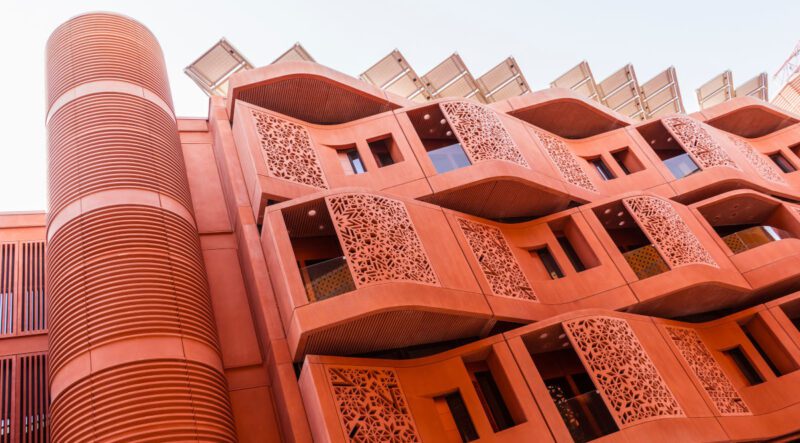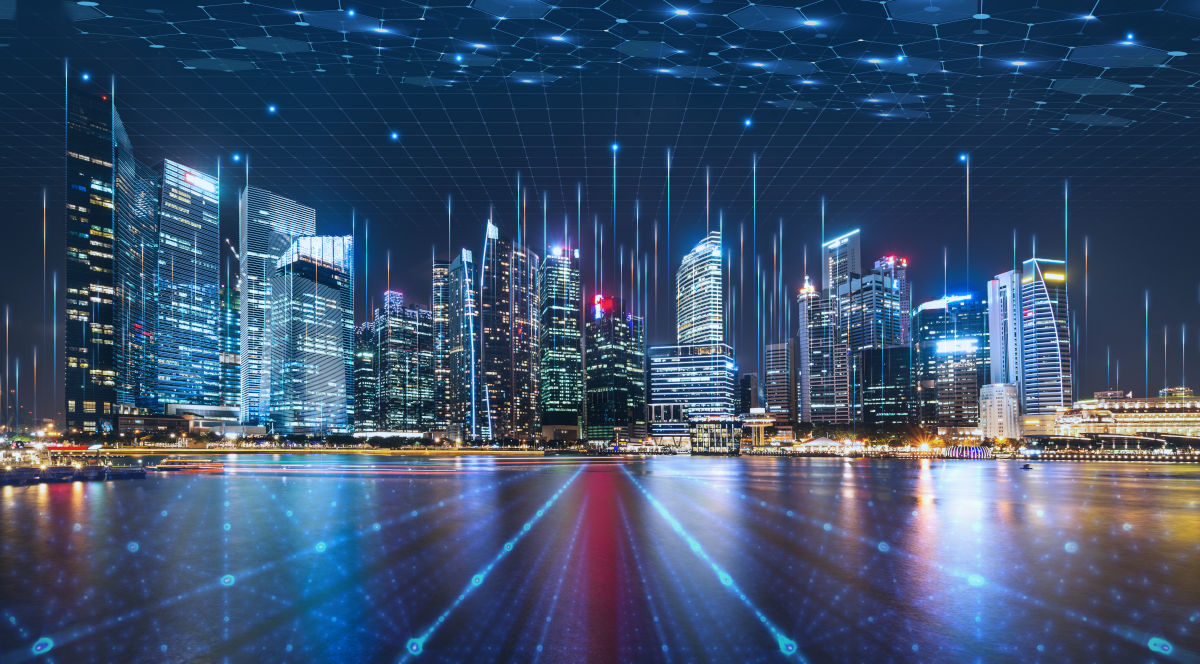Imagine a smart city that listens, learns, and adapts dynamically to the needs of its residents. A city where innovation and connectivity elevate every aspect of urban life. That is the vision of a not-too-distant future of cities shaped and driven by the digital transformation of urban environments.
This article looks into the burgeoning field of smart cities—urban areas that harness digital solutions to offer a more interconnected, efficient, and sustainable way of living. From smart utilities revolutionizing essential services like water and electricity to the digital advancements making cities more resilient against climate change, we explore the technologies and initiatives driving this transformation.
The Concept of Smart Cities
At their core, smart cities are interconnected ecosystems where every service and infrastructure component works in harmony to support an efficient, data-driven, and environmentally friendly urban environment.
Digital technologies, particularly the Internet of Things (IoT), artificial intelligence (AI), and smart infrastructure, are fundamental to this transformation. They enable city administrators to collect and analyze data in real time – from traffic patterns to energy usage – for more informed decision-making and proactive management of urban services.
The global smart cities market is on a trajectory of rapid growth. It is projected to reach US$104.80 billion in revenue in 2024 and grow with an expected CAGR of 12.15% until 2028. The US is anticipated to lead in revenue generation from smart cities, with an estimated revenue of US$12.74bn in 2024.
Countries like Singapore and UAE, meanwhile, are already setting benchmarks with their innovative smart city initiatives.
Smart Cities: Transforming Urban Infrastructure

Dubai’s “Smart Dubai” initiative is a prime example of how integrated digital strategies can transform an urban landscape. Launched in 2014, this ambitious project aims to turn Dubai into the smartest and happiest city on the globe by harnessing cutting-edge technologies and data analytics. The initiative covers the optimization of the city’s transportation systems through autonomous transit solutions, the rollout of digital health services, and a sophisticated environmental monitoring network using extensive sensor technologies.
Similarly, the Masdar City project in Abu Dhabi further illustrates the region’s pioneering smart urban development. Conceived as a sustainable urban quarter, Masdar integrates clean energy solutions right from its design phase. It features solar-powered buildings and a transportation system solely composed of electric vehicles. The development includes advanced waste management systems and smart buildings equipped with energy-saving technologies, all designed around eco-friendly principles.
Challenges and Solutions in Smart City Development
The journey towards building smart cities is fraught with challenges that span technological, social, and regulatory spheres. Addressing these issues is paramount to realizing the full potential of our urban environments.
- Privacy Concerns and Data Security: As smart cities rely heavily on the collection and analysis of data, protecting citizen privacy becomes a critical concern. The risk of data breaches and misuse raises significant questions about security measures and data governance. Cities need to establish strong cybersecurity frameworks and embrace privacy-by-design principles to address these risks effectively. Ensuring transparent records and document management systems and securing informed consent are essential to fostering trust among the community.
- Digital Divide: The promise of smart cities comes with the caveat of ensuring equitable access to technology. A digital divide can exacerbate existing inequalities, leaving some segments of the population behind when it comes to receiving the benefits of urban digital transformation. Bridging the digital divide requires targeted policies to improve digital literacy and infrastructure accessibility. Initiatives like public Wi-Fi networks and community digital literacy programs can help ensure all citizens benefit from smart city advancements.
- Infrastructure and Implementation Hurdles: The transformation to a smart city demands significant investments in digital infrastructure, which can be a daunting task for many municipalities. Integrating new technologies with existing urban systems presents complex implementation challenges. Phased and modular implementation strategies can make the transformation more manageable. Public-private partnerships and international cooperation can also provide the necessary funding and expertise. Utilizing flexible platforms that can integrate with existing infrastructure reduces implementation barriers. Organizations also need to have the appropriate IT infrastructure and systems in place to facilitate these new technologies. This is where tech partners like NVSSoft come into play, ensuring that document management, correspondence management, and task management systems are all in place to facilitate the swift decision-making and service delivery that drives smart cities.
- Resistance to Digital Transformation: Change is often met with resistance, and the shift towards smart cities is no exception. Skepticism from citizens and institutions can hinder adoption rates and the success of digital initiatives. Effective communication and public engagement are crucial in overcoming resistance. Cities can demonstrate the tangible benefits of smart city projects through pilot programs and actively involve communities in the development process to foster acceptance and enthusiasm.
The Future of Smart Cities

As we peer into the future, we envision cities that adapt and respond with agility to the changing needs of their inhabitants and the global climate. These futuristic urban landscapes will integrate technology across every aspect of city life while forging paths toward sustainability, efficiency, and enhanced citizen well-being.
Battle Climate Change on the Urban Front
Smart cities emerge as frontrunners in the fight against climate change by leveraging technology to reduce carbon footprints and promote green living. Urban centers will harness renewable energy, smart grids, and green infrastructure to create resilient communities that can withstand and adapt to the challenges posed by climate change.
Embrace the Age of Autonomy
Autonomous technology and mobility solutions such as self-driving cars and advanced public transportation systems alleviate traffic congestion and reduce emissions. These innovations promise a future where mobility is not just about moving from point A to B but doing so in the most efficient and environmentally friendly manner possible.
Personalized Urban Experiences
The concept of personalized services will extend to every facet of urban life, from customized public services to adaptive living spaces that adjust to the needs and preferences of their residents. Smart cities will use data analytics and AI to understand and anticipate the needs of their citizens while providing services that are both responsive and predictive.
Revolutionize Urban Futures
The digital transformation towards smart cities is not just about the technologies that residents see and interact with daily. It is equally about the seamless integration and streamlining of backend processes that make these innovations possible.
Achieving such transformations requires robust solutions that can manage, automate, and optimize the vast array of administrative tasks behind the scenes.
By employing tools like document management systems, correspondence management systems, process automation software, and records management, cities can ensure that their digital transformation is comprehensive and efficient.
NVSSoft products like Medlogic, Tarasol, and Arcmate are pivotal in this context. They enhance operational efficiency and allow city administrators to focus on strategic initiatives and innovation aimed at building intelligent urban ecosystems.
Discover how NVSSoft can be your partner in creating more efficient, sustainable, and resident-friendly urban environments. Contact us today and explore the possibilities!





